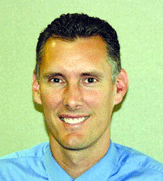Dear Dr. Spence,
I have seen your articles on the complications of gastric bypass. I am contemplating undergoing gastric banding which I understand is less risky. Can you comment?
Signed,
Big Mac
Dear Mac,
Health risks associated with obesity are well documented and include diabetes mellitus, hypertension, osteoarthritis, gastroesophageal reflux and sleep apnea. The cardiac risks are enormous. For the first time in nearly a century our life expectancy has actually declined. The presumption is that this is a consequence of our trend towards expanding waistlines. Recent studies suggest that up to 1/3 of our population is obese. The above conditions severely impact quality of life and potentiate the risk of life-threatening disease. Unfortunately, despite dietary restrictions, exercise, behavior modification and weight loss medications, many individuals are still unable to lose weight or have problems with maintenance. At two years, all diets (i.e. Adkins, South Beach, bread and water) result in a trend back towards one’s pre-diet weight. Surgery remains the only proven long-term option available for obese patients (body mass index greater than 40). Laparoscopic banding offers a minimally invasive and safe surgical option as opposed to formal gastric bypass surgery. This adjustable gastric banding system consists of an inflatable band that encircles the upper portion of the stomach, effectively restricting intake. An implanted access port allows the physician to tighten or loosen the band by injecting or withdrawing saline. Therefore, the band can be adjusted based on factors such as inadequate weight loss (too loose) or symptoms of nausea and vomiting (too tight). Unlike standard gastric bypass, there is no cutting of the stomach or disruption of one’s internal anatomy. This dramatically reduces morbidity and mortality. Four separate studies have provided illuminating data as to the efficacy of the procedure. Over 90% of patients have experienced resolution or improvement of their diabetes, sleep apnea or even asthma. Forty-four to seventy-five percent of patients could actually discontinue treatment for their concomitant issues. Weight loss at three years appears to be comparable to gastric bypass. There are over 1200 lap-band surgeons in the United States alone. Information can be obtained at www.lapbandcentral.com or at 1-800-LAPBAND (527-2263). The site allows users to find qualified surgeons close to home for referral and gives insight as to how to navigate through the world of insurance coverage. Typically, patients need six months of consecutive monthly visits with their primary physician in order to be considered for the surgery. They will need to make appointments with a dietician and with psychiatry to ensure they are psychologically ready for the surgical intervention and its effects on eating habits once all is said and done.
Do you have any medical questions or concerns that you would like addressed? You can contact Dr. Spence by email at scripna@hotmail.com or by mailing your question to Daily Dose, P.O BOX 6107, Marianna, FL 32446.
Subscribe to:
Post Comments (Atom)

No comments:
Post a Comment